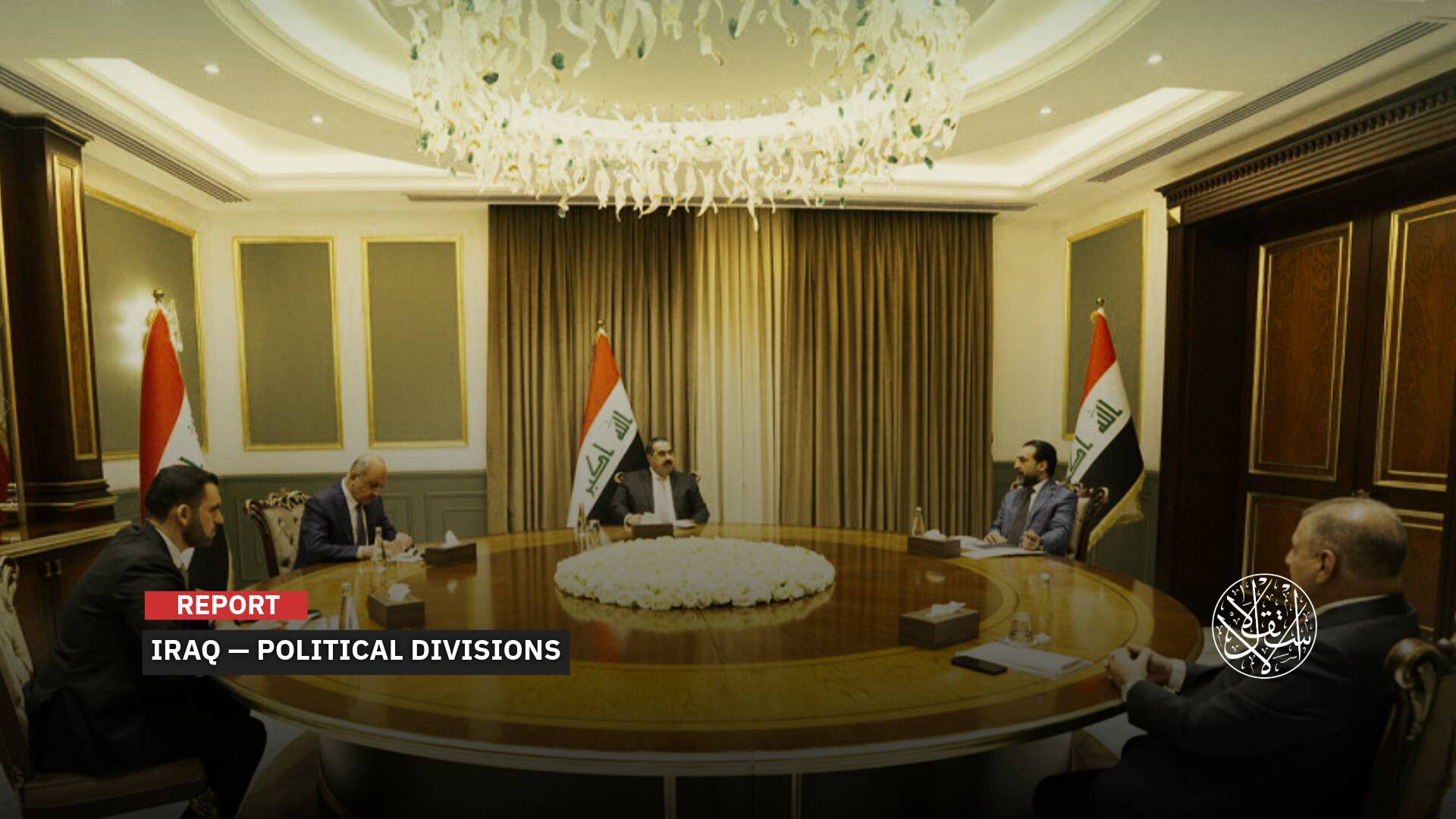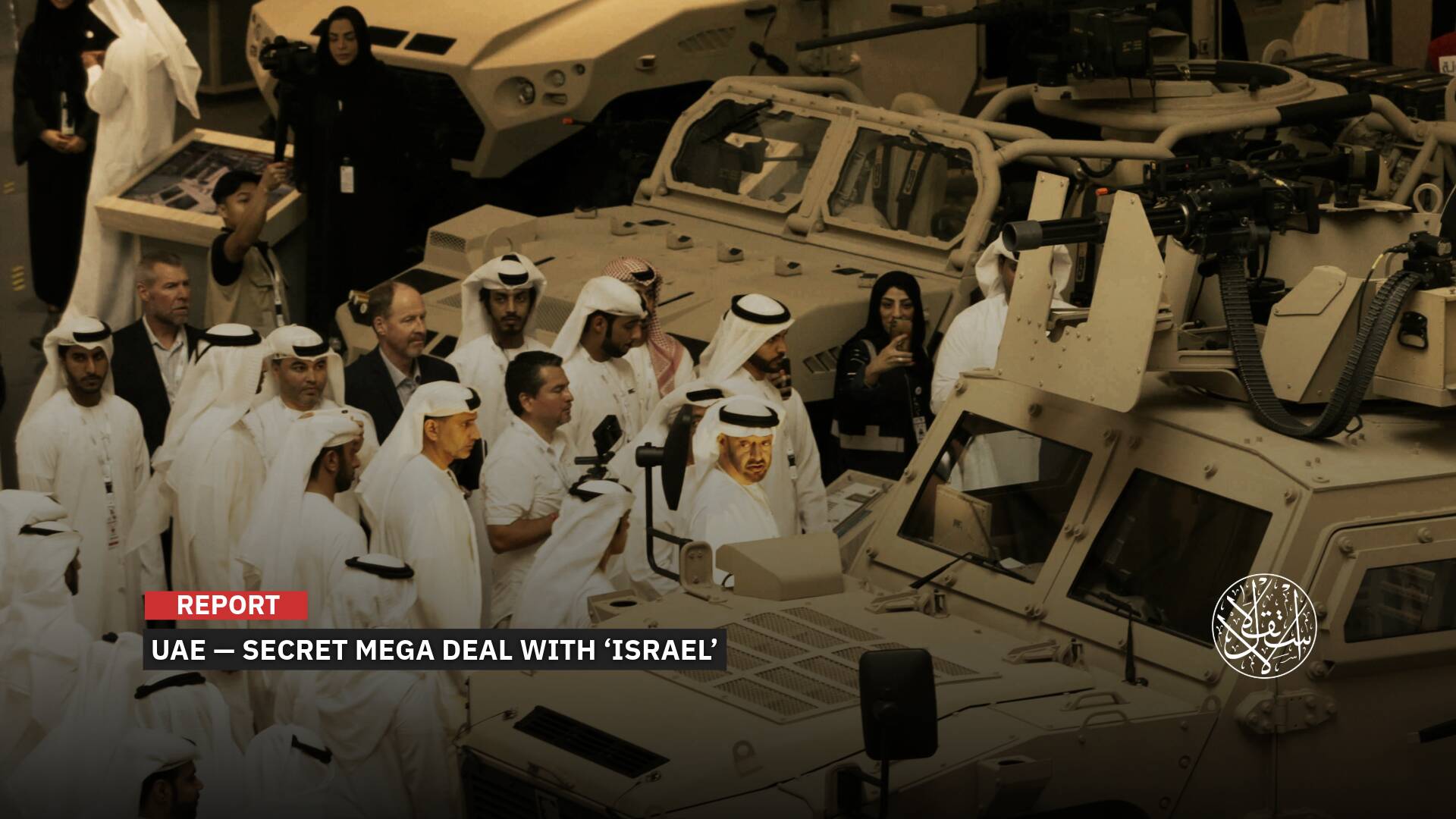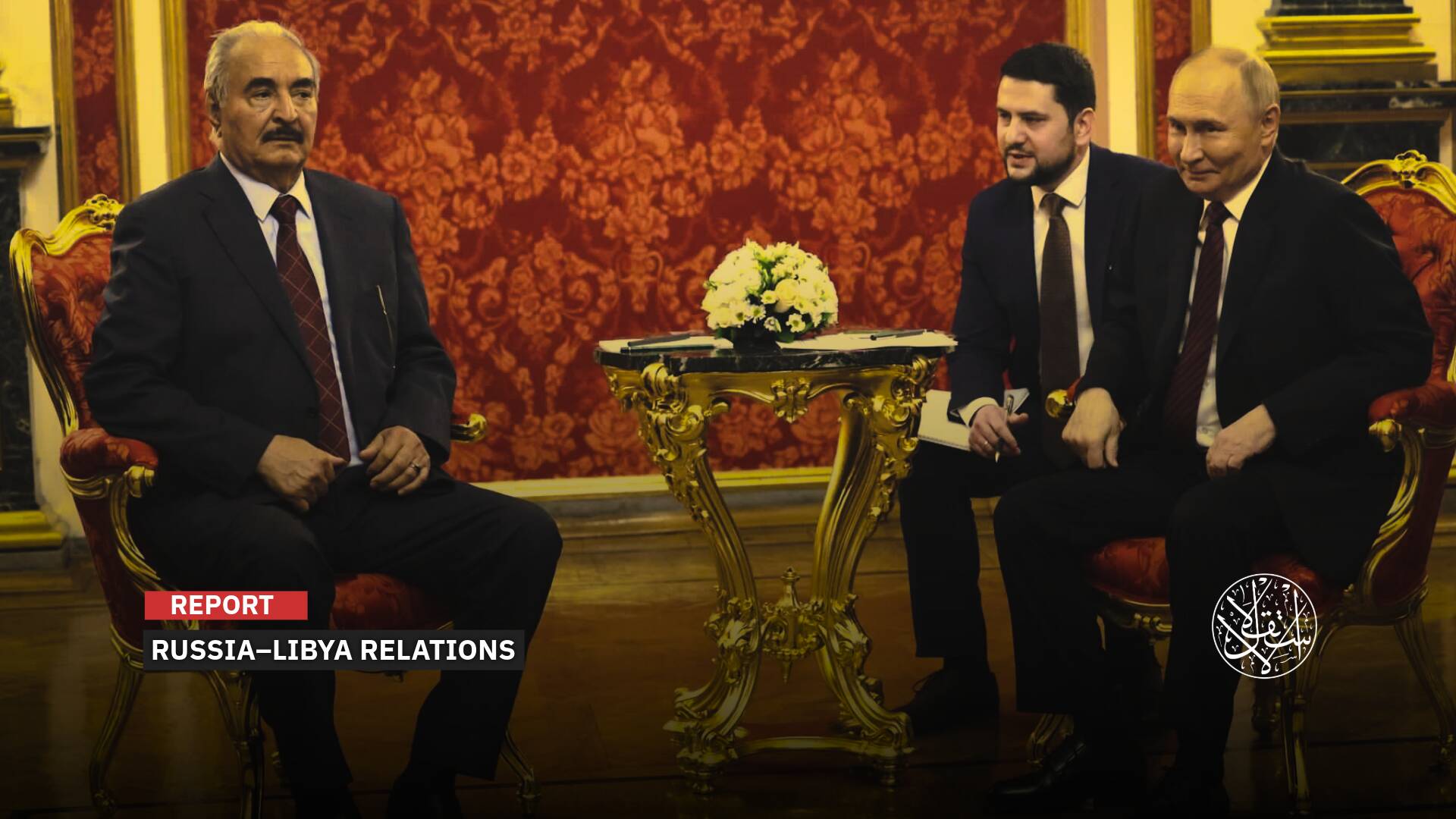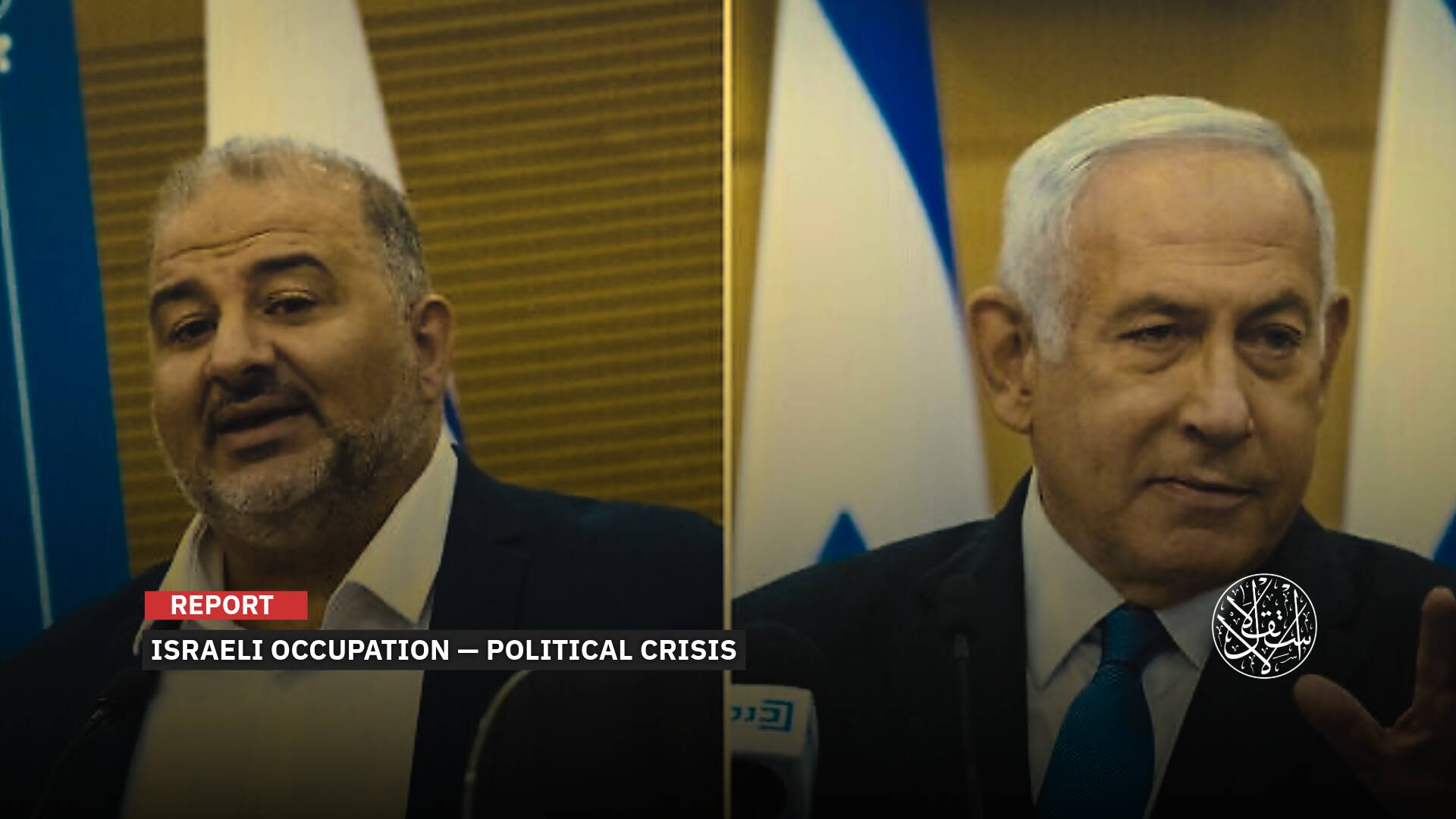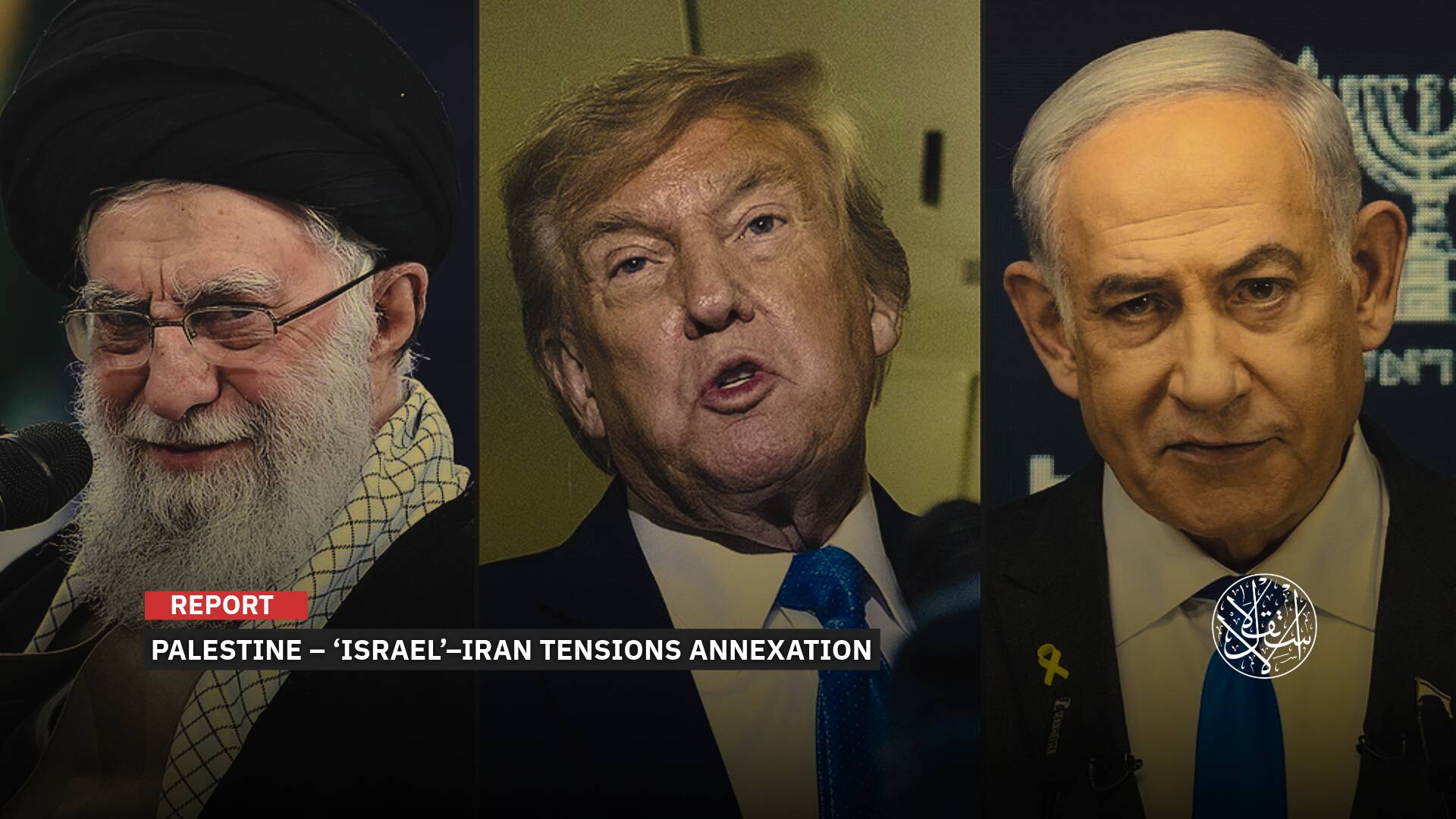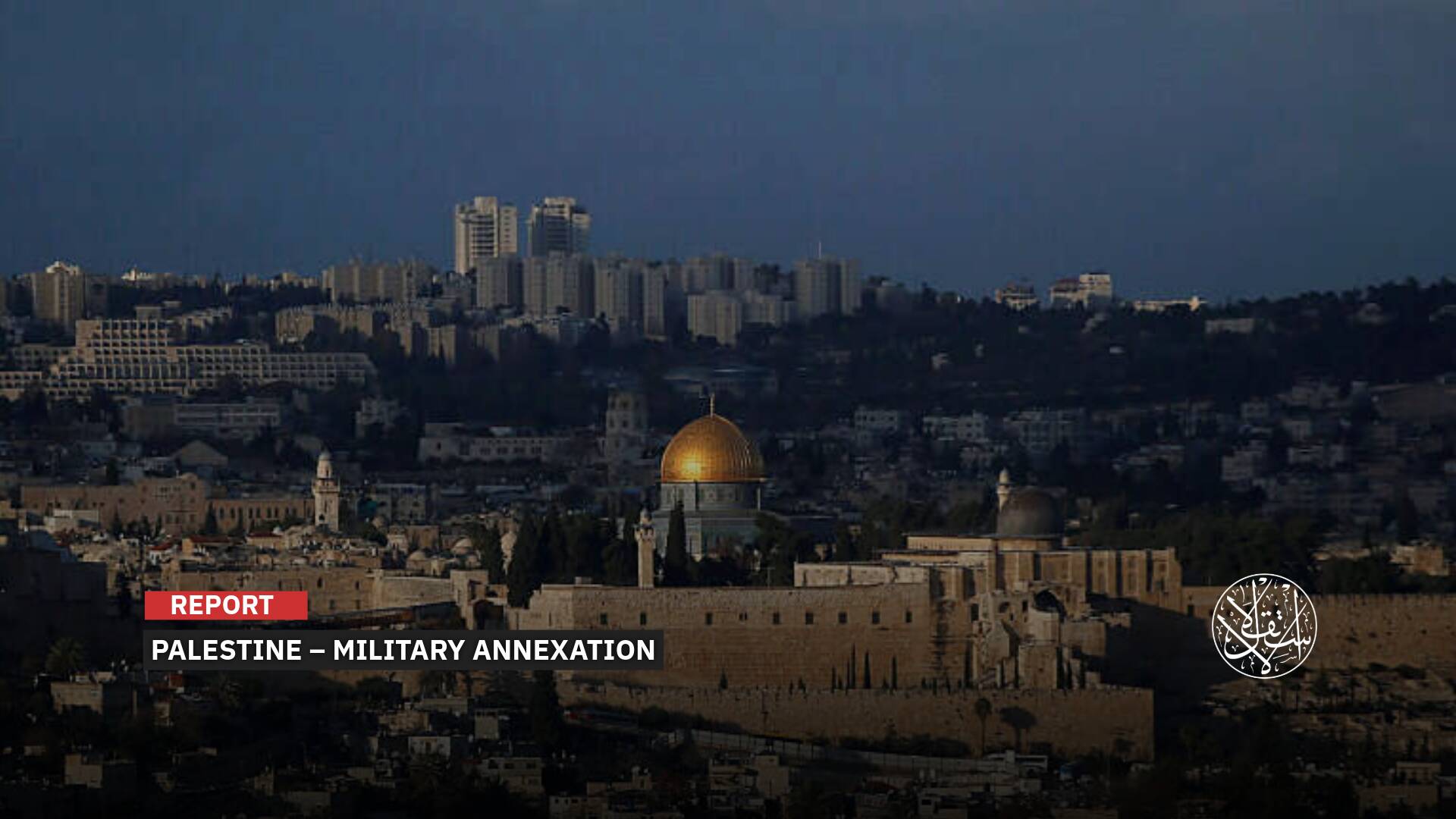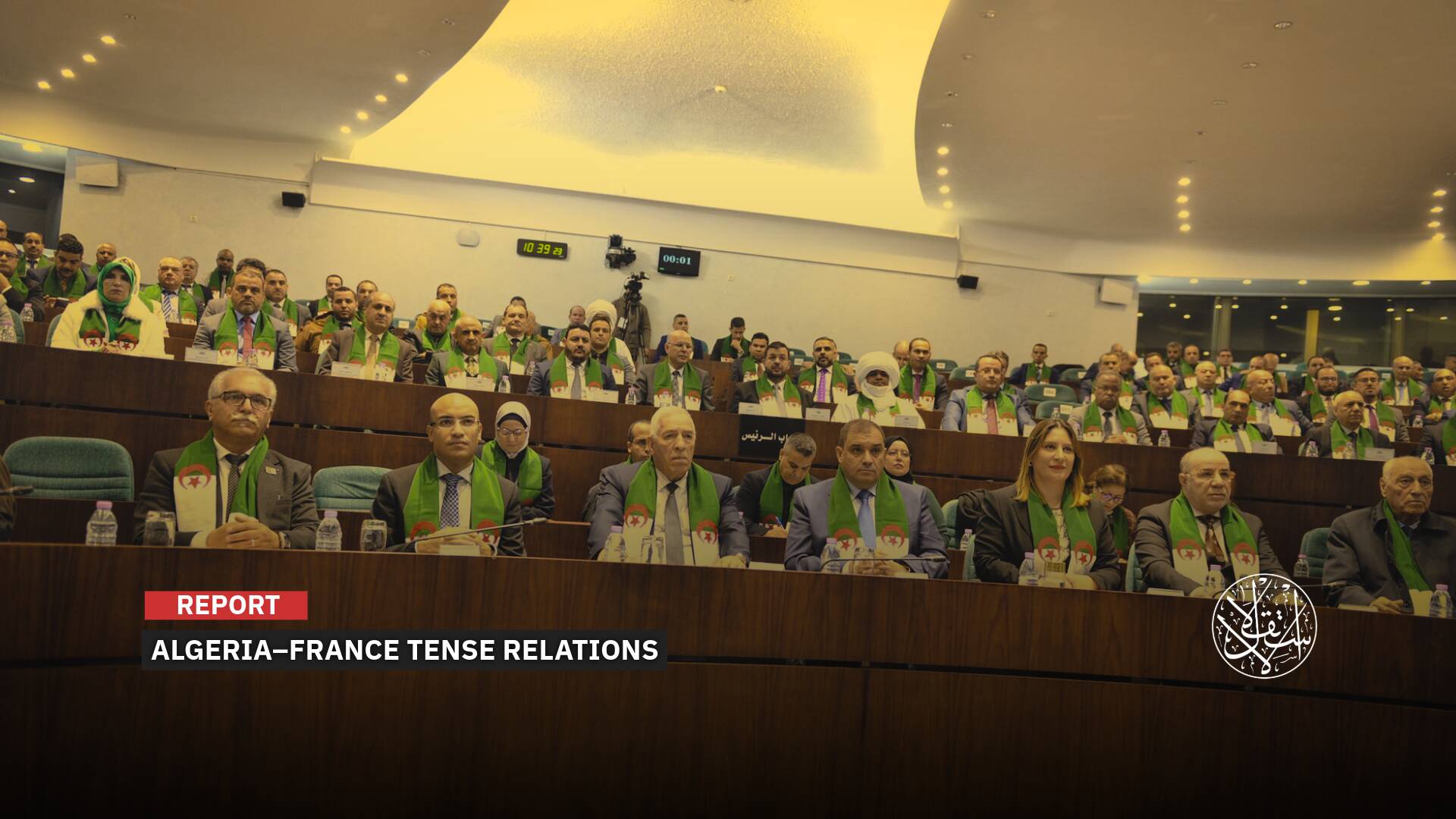UAE Projects in Southern Gaza Strip: How Do They Serve the Israeli Displacement Scheme?
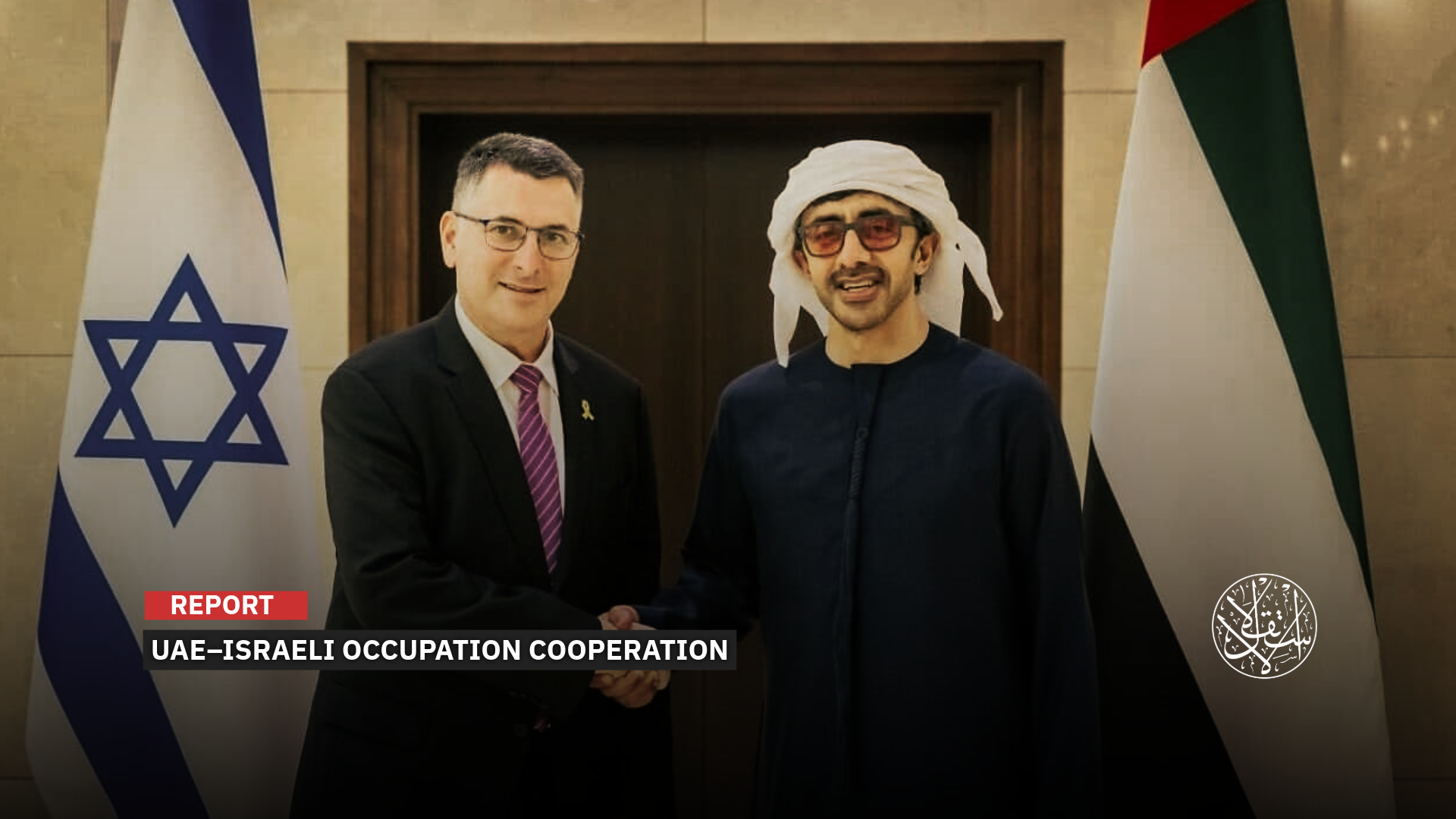
The UAE projects came at a dangerous and suspicious time, amid talk to occupy Gaza City.
The United Arab Emirates faces accusations of participating in an Israeli scheme to displace Palestinians by launching controversial projects aimed at pushing residents from northern Gaza to its southern areas.
Since mid-August, the Israeli Occupation forces has escalated its aggression on Gaza City under what it calls “Gideon Vehicles 2,” aiming to drive civilians toward the al-Mawasi Khan Younes area in the south of the Strip.
The Israeli army designated al-Mawasi as a “safe humanitarian zone,” yet it has continued shelling the area since the start of its genocide on October 7, 2023, killing thousands of innocent people.
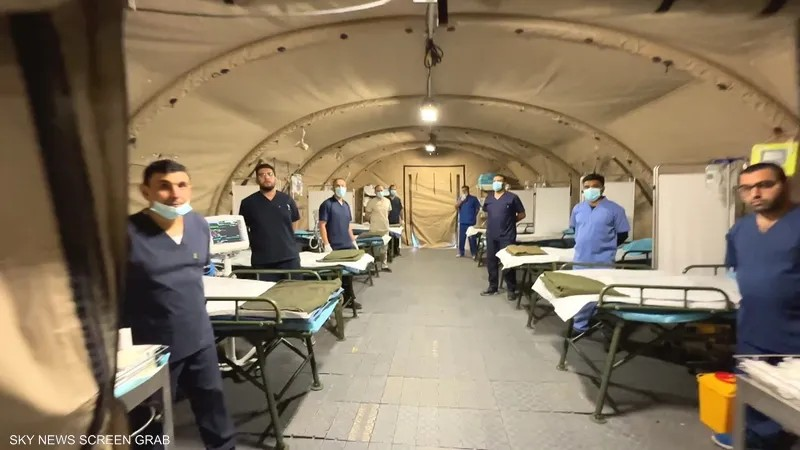
Emirati Involvement
The Israeli Occupation army stated that the al-Mawasi area includes vital infrastructure such as field hospitals, water lines, and desalination facilities, in addition to the continuous provision of food, tents, medicines, and medical supplies, according to its claims.
However, field testimonies and UN reports indicate that these so-called “humanitarian zones,” including al-Mawasi Khan Younis, practically lack the basic necessities for life. There are no effective field hospitals or service facilities that can accommodate the number of Palestinians living there.
Notably, two Emirati projects were listed among the civil infrastructure that the Israeli Occupation claims exists in the southern Gaza Strip, placing Abu Dhabi at the center of accusations of contributing to the displacement scheme.
On September 6, the Israeli Occupation army spokesperson, Avichay Adraee, published a detailed map of the area, which included among its facilities an Emirati water line and a field hospital.
The Emirati water line is a project that transports desalinated water from the Egyptian side to the al-Mawasi area, and its inauguration on August 28, 2025, coincided with preparations for a plan to occupy Gaza City.
Omar Shatat, Deputy Director General of the Coastal Municipalities Water Utility, who attended the inauguration alongside representatives from civil society organizations, said the project is the largest of its kind in Gaza since the Israeli war on the Strip.
In a Facebook post, he explained that the project aims to meet the needs of residents and displaced people in the overcrowded al-Mawasi Khan Yunis area, which suffers from a lack of water sources, while also serving parts of northwest Rafah in the south.
The new line runs 6.7 kilometers from the Egyptian border along Gaza’s coastal road to Khan Younis. It will supply safe drinking water to displaced families in the overcrowded al-Mawasi district and to parts of Rafah.
Shatat noted that the pipeline transports and pumps potable water from the seawater desalination plant established by the United Arab Emirates in Rafah, Egypt, which began operations in February 2024 to serve displaced people in southern Gaza.
He added that the construction of the new pipeline will allow the desalination plant to operate at a higher capacity of up to 10,000 cubic meters per day, providing a safe and healthy water supply that serves hundreds of thousands of residents and displaced people in the al-Mawasi area west of Khan Yunis.
“This provides a vital source of clean water for hundreds of thousands of people facing severe shortages,” he said.
The Emirati field hospital in Rafah, at the southernmost part of the Gaza Strip, inaugurated by Abu Dhabi in December 2023, has been surrounded by controversy and debate.
While local media report that the hospital is non-operational, the Israeli Occupation has classified it as an active facility, and Abu Dhabi maintains that it continues to receive Palestinian patients.
In early September 2025, the hospital hosted a delegation from the World Health Organization as part of “strengthening” joint cooperation to support the health sector amid the humanitarian crisis facing the besieged area.
The hospital also continues to release occasional reports on treating Palestinian casualties as part of “Operation Noble Knight 3,” launched by Abu Dhabi during the ongoing Israeli aggression.
Claims that the hospital continues to operate come despite confirmations from Palestinians in southern Gaza that it is out of service, particularly after it was hit by shrapnel from nearby Israeli attacks in April 2025, which damaged some vital facilities and caused limited material losses.
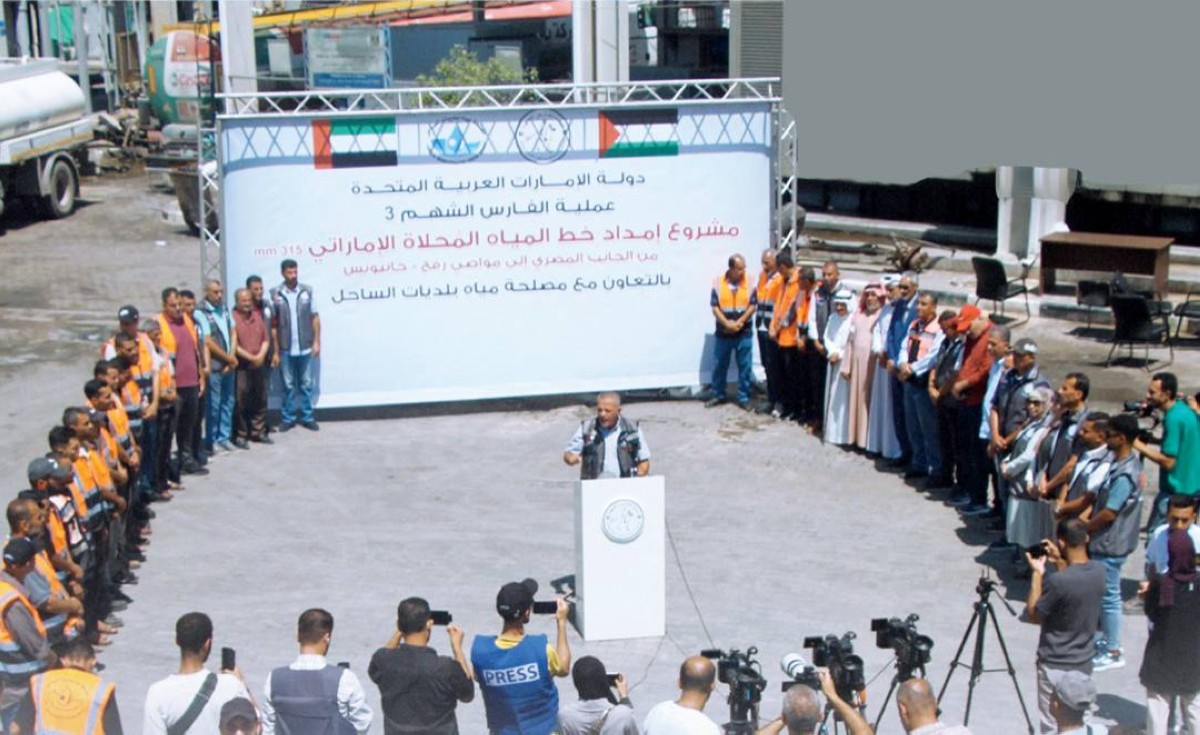
Suspicious Moves
For weeks, the two UAE projects have sparked controversy among Palestinians, who view Abu Dhabi as complicit in schemes to displace Gazans by launching vital services in the very areas the Israeli Occupation aims to push people toward.
According to Al-Estiklal’s monitoring of UAE institutions “operating” in Gaza and the activities of “Operation Noble Knight 3,” the Gulf state does not provide any services inside Gaza City or in the northern sector, areas the Israeli Occupation is seeking to occupy.
“Noble Knight 3” operations are limited to southern and central Gaza, especially in areas the Israeli Occupation claims are “humanitarian,” despite repeated bombings over months of the genocide.
Journalist Mohamed Suleman said the UAE hospital in Rafah raises serious questions, particularly since the city was completely evacuated after being overrun by Israeli Occupation forces in May 2024.
Speaking to Al-Estiklal, Suleman, who lives and works in field reporting in Khan Yunis, asked, “How can an entire city be emptied while this hospital remains, and who does it serve if there are no residents or people able to reach it?”
He mocked the situation, asking, “Does it serve only the staff working there? The Israeli Occupation forces are stationed in Rafah, and no one can access the hospital, which raises major questions about its role.”
Regarding the UAE water pipeline, Suleiman said, “This project came at a dangerous and suspicious time amid talks of Gaza City’s occupation, and it may serve as one of the strategic lines supporting the so-called humanitarian city Israel wants to concentrate people in before displacing them.”
In July 2025, Israeli Minister of War Israel Katz asked the army to move forward with a plan he called the “humanitarian city,” to be built on the ruins of Rafah, initially housing around 600,000 Palestinian refugees forced to evacuate to the al-Mawasi in Khan Yunis.
He noted that these displaced people would undergo rigorous security screenings to ensure they are not affiliated with Hamas, after which the Israeli Occupation army would surround the area and allow them to leave only via the sea to another country or to Egypt.
The UAE’s stance on displacing Palestinians sparked early controversy when U.S. President Donald Trump in February 2025 proposed a plan to push Gaza residents toward Egypt and Jordan, converting the area into a real estate project dubbed the “Riviera of the Middle East.”
On February 14, UAE Ambassador to the United States Yousef al-Otaiba said Washington’s current approach to Gaza is “difficult,” while noting there was no alternative plan to Trump’s displacement proposal.
“But at the end of the day, we’re all in a solution-seeking business, we just don’t know where it’s going to land yet,” he added during the World Government Summit in Dubai.
Commenting on the ongoing schemes, journalist Mohammed Haniya posted on X, “There is an Arab state supporting the Israeli Occupation’s schemes in Gaza under the guise of humanitarianism, having recently connected a water line from Egypt to the al-Mawasi, Khan Yunis, as a prelude to displacement.”
“The Israeli Occupation plans and executes through bombing and killing, and this state helps on the ground.”
“An Arab state complicit with Israel is coordinating with its allies among armed militia leaders in Libya and South Sudan to displace Gaza residents, and is currently working through its teams in the Gaza Strip to prepare the largest human detention facility south of Khan Yunis,” activist Belal Nezar on X.
“This state [the UAE] is equipping the detention site with water stations and infrastructure to serve as the final gateway for the displacement plan,” he added.
Ramy Abdu, head of the Euro-Mediterranean Human Rights Monitor, said, “The true Arab stance on the Gaza massacre is reflected in the area south of the Morag axis (between Khan Younis and Rafah), where an Arab state is involved in preparing the infrastructure for displacing Gazans, backed by a closed Arab crossing.”
Military Cooperation
The issue extends beyond the establishment of suspicious civilian projects serving Israeli Occupation interests; it also involves military and security cooperation between Abu Dhabi and Tel Aviv.
On August 21, 2025, the Hebrew site Srugim confirmed recent speculation that the UAE supplied the Israeli Occupation with weapons via a secretive aircraft.
It reported that a heavy Ilyushin Il-76 took off that morning from al-Dhafra airbase in Abu Dhabi, landed in southern occupied Palestinian territories—apparently near Nevatim Airbase—and then returned directly to the UAE.
Nevatim serves as a reception point for arms shipments to the Israeli Occupation army, according to the Hebrew source.
Based on flight tracking data cited by Srugim, the UAE cargo plane departed Abu Dhabi, flew over Saudi and Jordanian airspace, and reached the Negev Desert.
The aircraft, previously linked to a secret UAE arms operation, was documented transporting weapons to Sudan’s Rapid Support Forces, with which the UAE maintains close military ties and serves as their main arms supplier in war zones.
The UAE’s role is not limited to direct arms transport; it also includes strategic investments in the Israeli company Elbit Systems, which supplies the Israeli Occupation army with ammunition, drones, and advanced defense systems.
Elbit Systems opened a branch in the UAE in November 2021, shortly before then-War Minister Benny Gantz visited Dubai. The company stated at the time that the branch aimed to “establish long-term cooperation with the UAE armed forces,” producing Hermes drones and electro-optical surveillance systems.
Srugim noted that “the UAE has its own interests in dismantling Hamas and other major terrorist organizations in the region.”
The UAE’s relative silence regarding Israeli Occupation’s crimes in other Arab countries—Yemen, Syria, and Lebanon—has raised eyebrows in the Arab world.
Journalist Mohamed Suleman argues that the advanced security cooperation between the UAE and the Israeli Occupation, following the 2020 normalization agreement, drives the Gulf state—known for its hostility toward Islamists—to plan operations aimed at weakening Hamas.
He highlighted UAE ties with the Yasser Abu Shabab militia, formed by the Israeli Occupation army to operate in southern Gaza to loot aid, create chaos, and fight Hamas.
On June 9, 2025, a widely circulated photo showed Ghassan Al-Dahini, deputy leader of the Abu Shabab militia, firing next to a vehicle with UAE license plates, raising questions about Abu Dhabi’s potential support for this controversial militia.
At the end of the same month, a Palestinian Authority security official told the Hebrew newspaper Yedioth Ahronoth that the Abu Shabab militia receives support from the Israeli Occupation and Mohammed Dahlan, the exiled Fatah leader and advisor to UAE President Mohammed bin Zayed.
Dahlan has long been positioned by the UAE as an alternative to Palestinian Authority President Mahmoud Abbas, who expelled him from Fatah over corruption allegations.
Among Palestinians, the projects and aid that the UAE “provides” in coordination with the Israeli Occupation are seen as part of a broader strategy to increase the Gulf state’s influence and secure a role in Gaza’s future.
Sources
- UAE launches water pipeline from Egypt to southern Gaza amid collapse of local supply
- UAE opens pipeline to channel desalinated water from Egypt to southern Gaza
- UAE's ambassador to Washington says US Gaza approach 'difficult'
- The UAE Field Hospital in Rafah Hit by Shrapnel [Arabic]
- Caught Red-Handed? The UAE Supplying Weapons to Israel [Hebrew]



